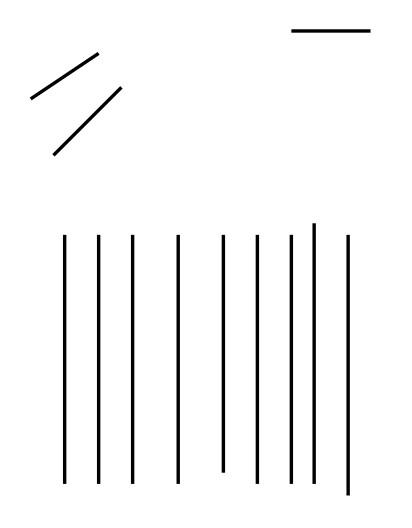new year’s day (in kayaks)
raindrops
ringing up
from shadowfield and goosepimpling
the surface
I want to enter the grey palette
of low hills and saltwater
diffuse where they softly touch.
we watched shorebirds ceaseless in the mud
and all facing one direction
we are always swallowing and forgetting.
more time for watching, less for forgetting
even better to fall upwards like rain
in the evening I visit our apartment
I visit my books, my instruments, the plants
I visit the kitchen and cook a meal
I do some stretches while listening to Palestinian rage and despair
I wonder whether the sun came today,
what sounds alighted on our surfaces
from Anne Boyer’s Handbook of Disappointed Fate, p.11
“Poetry is sometimes a no. Its relative silence is the negative’s underhanded form of singing. Its flights into a wide-ranged interior are, in the world of fervid external motion, sometimes a method of standing still.”
on sunday afternoons we visit the park named
for the bicentenary of my ancestors’ invasion
its creeks, canals and wetlands have held refuse from
abattoir, brickworks, armoury, arnott’s biscuit factory
the pathways are jewelled with wonderful words: beaded glasswort, samphire,
spoonbill, avocet, buoyant propagule, east asian australasian flyway
The book I will write is spacious and slow. It is a book that will look into the branches and beyond to the sky. A sky whose colour is the opposite of busy; a sky with a membrane moon. It is a book that says East Asian Australasian Flyway. It is a book that says work removes us from the world. It is a book that says simply, I wish my mum was still here. It it a book that says fuck productivity, free Palestine, stop Black deaths in custody, Climate Justice Now. It is a book without a schedule. A book for a kid I teach, who, when asked why we say Acknowledgement of Country, replied: it’s important to say thanks cos it’s a wonderful world. Who also wanted to turn road signs upside down so bats could read them.
The book will sleep.
it will begin and never end here in the geological strata of sound
lorikeets; homebush bay drive
lapwings; bike bells; snatches of chatter
fairy wrens; lone currawongs; wind in casuarinas
at the anti-climax the cars and trucks on homebush bay drive will stop for a breath. maybe christmas day. maybe a lockdown.
Anne Boyer writes about Karin Brodin’s poem “Woman sitting at the Machine, Thinking”, Handbook of Disappointed Fate, p.173
“Woman Sitting at the Machine, Thinking is about what occurs in the moment that interrupts poetry: work. When the poems were written and people could still get full-time jobs, the moment that interrupted poetry was from 9 to 5. Even then, though, work in the U.S. was seeping out if its forty hour container, spreading onto everything. . .
Woman Sitting at the Machine, Thinking is about what work takes from workers, but also about what it can’t take: intelligence, resistance, solidarity, action on the street, and dreams like ‘the buildings around us are plastered with hundreds of / red stickers that shout STRIKE STRIKE STRIKE.’”
But work, or too much of it, takes this from us too.
To start: shorter work days in winter / mandated time with the daytime sky
my job’s intensity is its own species of beauty
the knowing and loving
a sublimation into the worlds of people newly made, newly discovering
the wonder and horror of their inheritance,
putting language and gesture to it all, asking why why why
but I am not teaching them to go slow, and the work is not
the sky, not my family, not my friends opening and closing and opening unto one another, not
fumbling new modes of home-making, not fuck productivity, not free Palestine
the music will be lento, grave, adagio; at most andante, cantabile
dad on his bike
riding around the place, staying active,
avoiding idleness, avoiding dwelling, avoiding isolation,
whacking grief’s flat ball on its predictable arc
he sees a cello case next to a woman, says hello, says are you a musician
the cellist says yes, I run a string group at the school
dad straightens, says my wife started music there, narelle, she taught music there for decades,
narelle, all the kids know her, choir, xylophones, piano, musicals,
the cellist shakes her head, hasn’t heard of her
he recounts this on the phone
and we understand that the work of remembering will not be done by the world but only by our
clumsy unrehearsed hands while the world skips brightly away
and I remember walking to the shop together after her mind and body had begun to loosen like scree
and two boys, former piano students, said confidently hi narelle, then looked closer and looked at
one another and said, is that narelle, and I said loudly yes it’s her, and the boys looked
uncomfortable and slipped away, and her face crumpled or was it mine
lying on the hill while miscarrying
pelican pelican plane
and tall casuarinas admitting
the gold part of light
the girls kicking a ball on the sideline and the dads playing soccer don’t know I am bleeding,
and that the bleeding is a miscarriage. It’s new to me too.
I am miscarrying on the hill next to the soccer game,
eating a pie and drinking a coffee
from the canteen
I know now I am part of the unseen demographic People Miscarrying in Public
the sloping grass is hungry for the afternoon sun
I am hungry for the sloping grass,
and the sounds bouncing at a remove;
they don’t need me
my miscarriage compels me to lie here
and love the coffee cup and wrinkled paper bag;
love the formation of pelican pelican plane that
looked like this above casuarinas
on the bus home
the sky could do anything and it did
its pink buffed the dirty asphalt,
making the tiled floor of an empty car showroom
a mirrored pool










